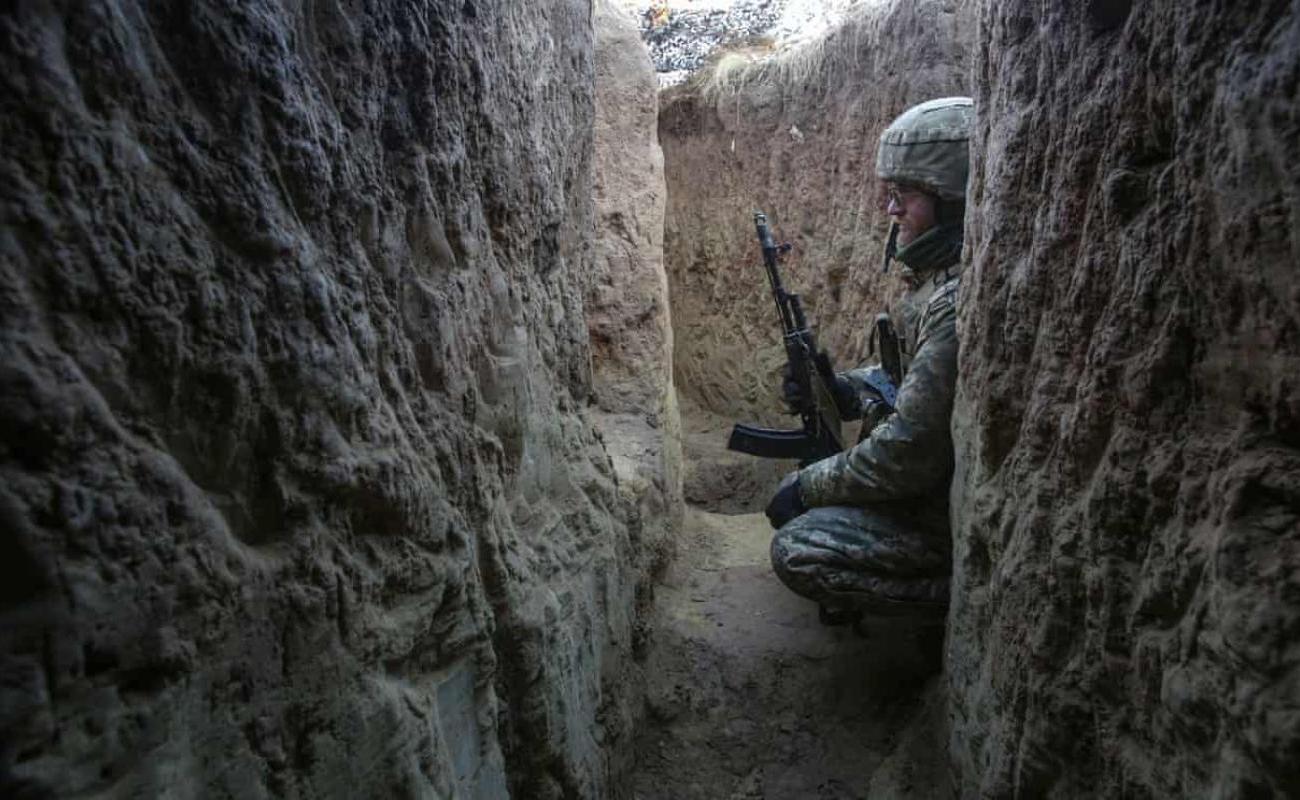The Observer view on Russia’s threat to Ukraine
Putin regards Ukraine as stolen territory and as the US focuses on China and Covid, Moscow is waiting to strike

Vladimir Putin is an old-fashioned sort of guy. He yearns for the days when the Soviet Union was a great power. He still views western democracies as adversaries, to be confounded whenever possible. And he has never reconciled to the post-Soviet loss of cold war-era satellite republics in eastern Europe. This is especially true of Ukraine.
The Russian view that Ukraine is stolen territory to which it has a natural right has roots in tsarist times and before. Ukrainians (and Belarusians) were habitually called “little Russians”. Indigenous narratives stress a common history and common faith indissolubly linking two brotherly eastern Slavic races. Putin has repeatedly stated that “Russians and Ukrainians are one people”.
Conveniently forgotten is 19th-century imperial oppression that included a ban on Ukraine’s language. In 1918, after the Russian Revolution, Ukraine declared its independence, only to have it swiftly snuffed out. In the 1930s, a man-made “terror famine”, known as the Holodomor, killed more than 7 million mostly ethnic Ukrainians and is now officially viewed as a Soviet genocide.
Despite all this, Putin views modern Ukraine’s bid for closer ties to the EU and Nato as a betrayal. This attitude recalls that of 1950s France towards Algeria and of 19th-century England towards Ireland. Yet he also appears to be genuinely fearful that Kyiv’s westwards lurch, encouraged and exploited by the US and allies, poses a threat to Russia.
Understanding a little of this shared history is essential to understanding why current tensions on Ukraine’s borders have the potential to explode into a European war. In 2014, in response to the revolution that toppled Ukraine’s pro-Moscow president, Putin invaded and annexed Crimea and began a proxy separatist conflict in the Donbas region.
The failure of peace efforts, championed by Germany’s Angela Merkel, led directly to today’s crisis. By stationing more than 90,000 troops and heavy weapons around Ukraine’s borders, Putin may be trying to push Kyiv and the west into a permanent settlement, the lifting of sanctions and formal recognition of Crimea’s new status.
But he has other motives, too. Moscow has always objected to Nato’s post-1990 eastwards expansion, especially into Poland and the Baltic republics. He would like to reverse the alliance’s recent deployments there of troops and missiles. He’d like US and UK arms sales to Kyiv, and talk of Ukraine’s bright “Euro-Atlantic future”, to stop.
Adept at leveraging Russia’s relatively weak geo-strategic position to his advantage, Putin also senses an opportunity. The US debacle in Afghanistan, after similar American failures of will over Syria, Crimea and Georgia, may have convinced him that another adventure in Ukraine could ultimately yield positive dividends while avoiding serious military consequences.
In this, unfortunately, he may not be far wrong. The US president, Joe Biden, has issued a series of tough-sounding warnings. He says he will talk directly to the Russian leader soon. Meanwhile, he boasted last week, he has prepared “the most comprehensive and meaningful set of initiatives to make it very, very difficult for Mr Putin to go ahead and do what people are worried he’s going to do”.
What this piece of Biden-speak means, in practical terms, is that the US plans to punish Russia economically and in other ways if it attacks Ukraine – but there will be no overt military response. Nato will not ride to the rescue; there will be no wider conflict. As Putin knows, Biden is in the business of ending wars, not starting them. It’s his promise to American voters. And anyway, he’s focused on China and Covid.
Seen this way, the crisis marks a very dangerous moment for Ukraine – and the credibility of the western alliance. The foreign secretary Liz Truss’s jingoistic blather about defending the “frontier of freedom” is actually a confession of impotence. Putin may be about to commit another act of daylight robbery. And, truly, who’s to stop him?
